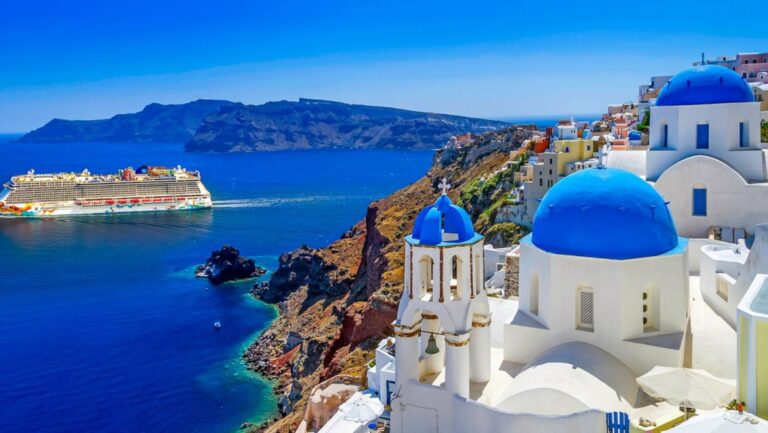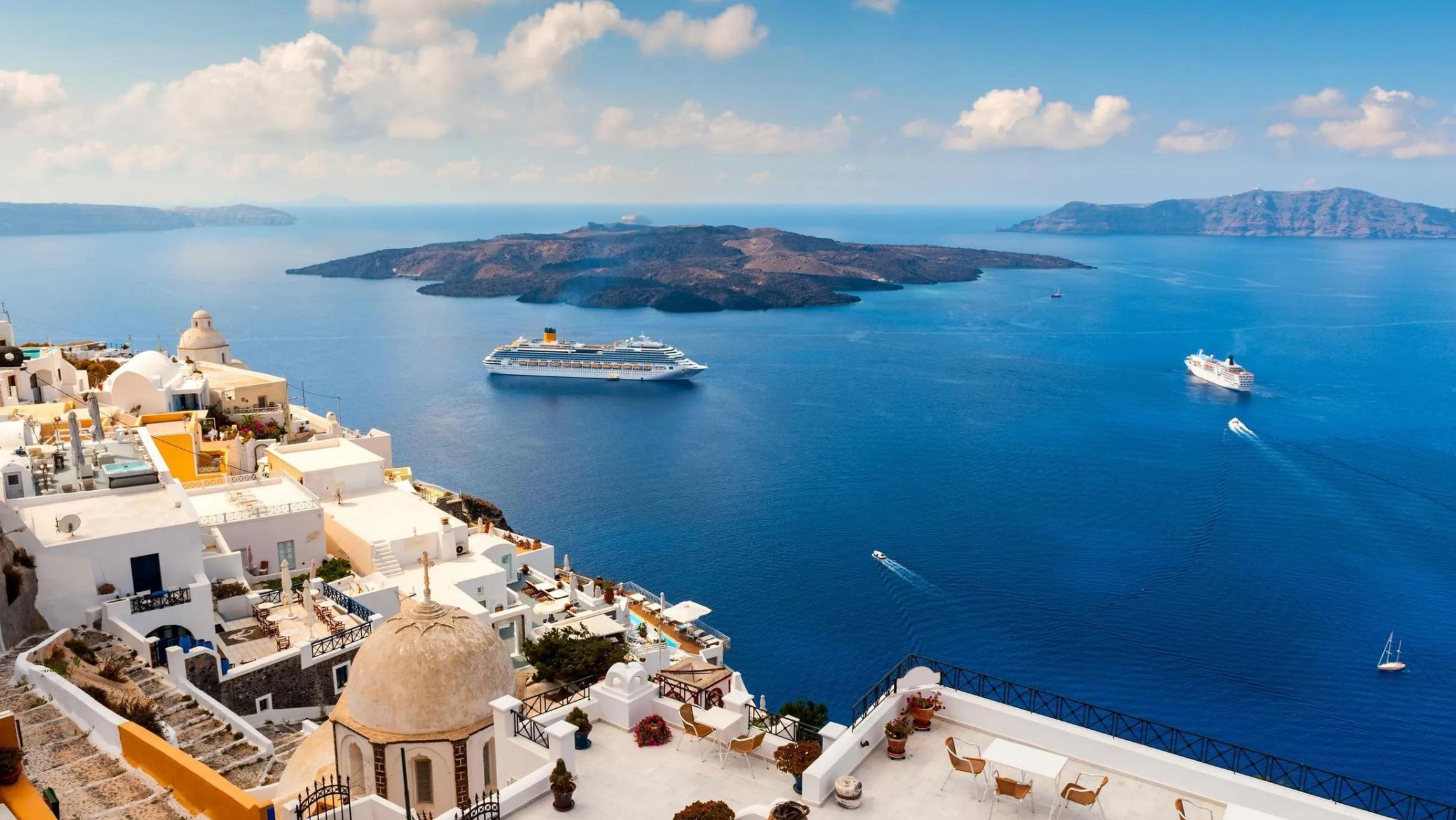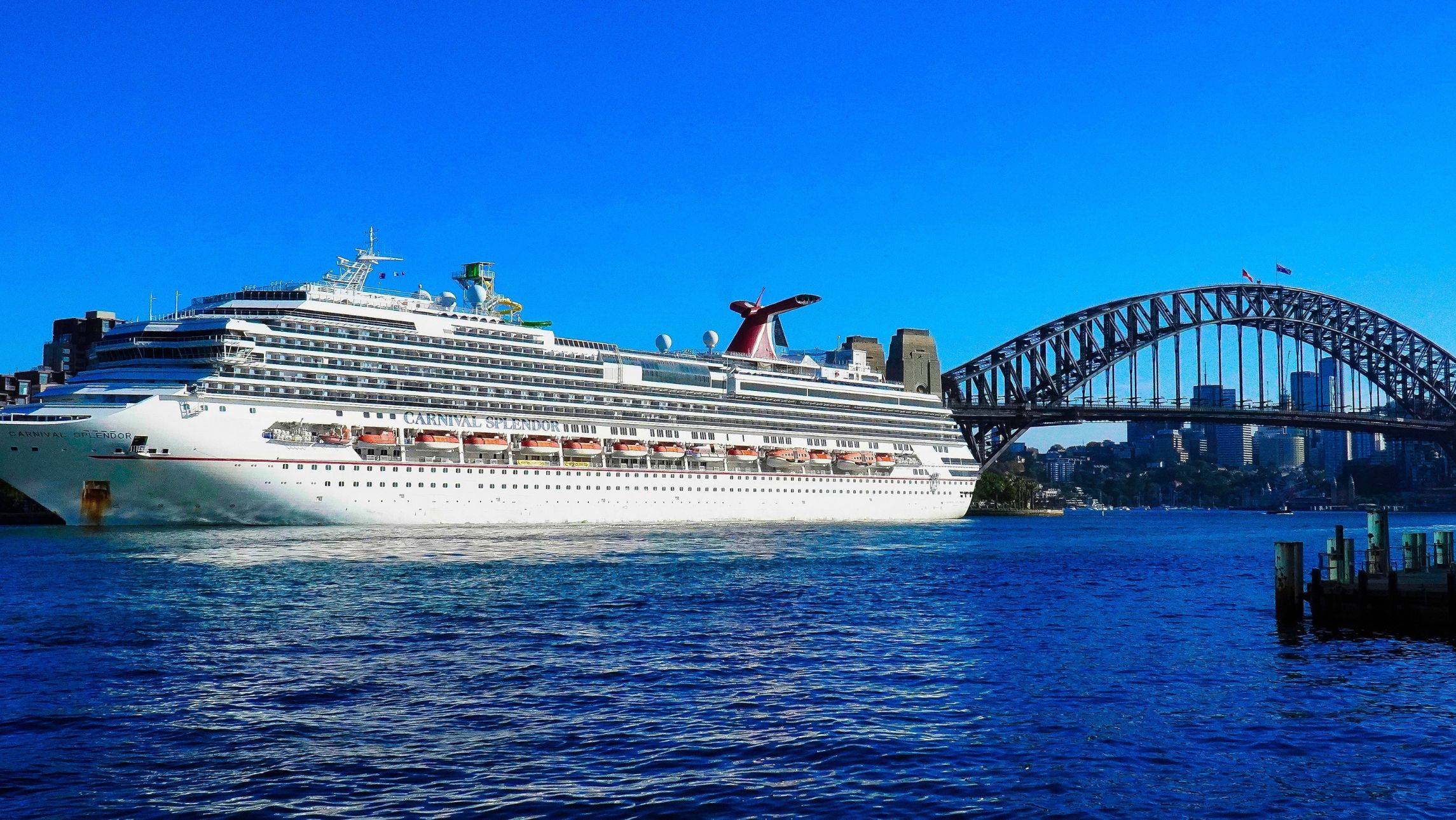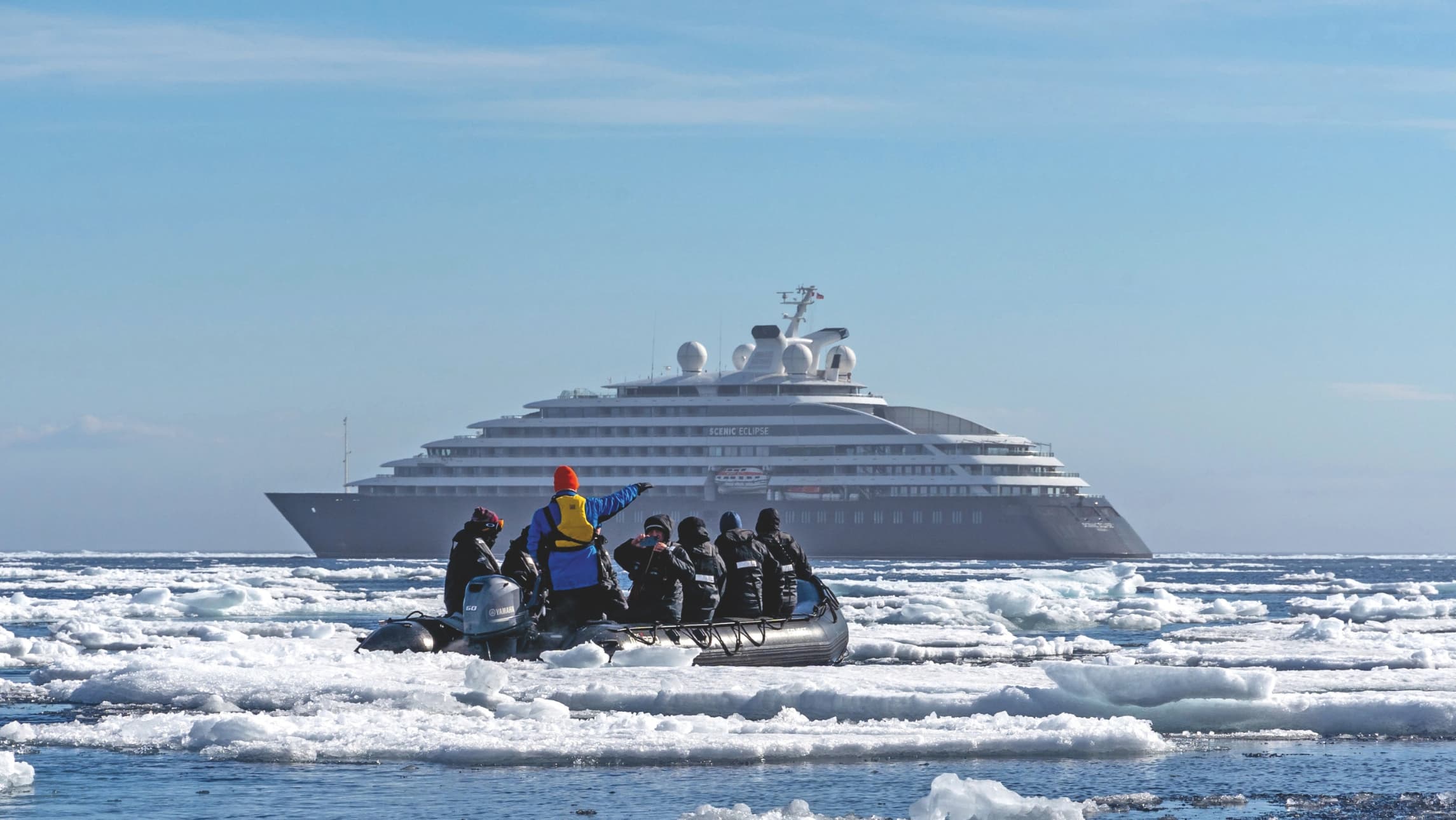The cruise industry has begun discussions with local authorities in Greece after the country’s Prime Minister Kyriakos Mitsotakis said ship visits should be capped at popular islands like Santorini and Mykonos.
Greece is one of the most popular destinations on a Mediterranean itinerary, hosting larger cruise lines like Royal Caribbean, Norwegian Cruise Lines and Celebrity Cruises but also smaller luxury vessels from Regent Seven Seas, Silversea and Seabourn.
Both Santorini and Mykonos are “clearly suffering,” Mitsotakis said according to Bloomberg, adding the decision to cap cruise visits could come as early as next year.
“There are people spending a lot of money to be on Santorini, and they don’t want the island to be swamped,” Mitsotakis said in the report.
“Plus, the island can’t afford it, even in terms of security.”
What CLIA is doing about over tourism in Greece
This week, CLIA’s Regional Director of the Eastern Mediterranean, Maria Deligianni and CLIA’s Vice President of Ports and Destinations, Nikos Mertzanidis met with the Mayor of Santorini, Nikolaos Zorzos and local authorities to discuss the future of cruising on the island.
“Santorini is a beautiful location that is extremely popular, and we share the view expressed recently by Prime Minister Mitsotakis on the importance of responsible tourism management for the island,” said Deligianni.
“Mayor Zorzos has been clear with us from the beginning of this season about his intention to implement the existing daily cap of 8000 cruise visitors strictly at 75% cruise capacity, and we are supportive of this position, recognising the circumstances of Santorini.
“Whilst we believe a holistic approach to address tourism flows is necessary, we are pleased to be the first to work with the Mayor of Santorini in this direction”.
Greece is the second major destination to issue concerns over cruise tourism. Starting in early June, Juneau in Alaska will set caps for lower berths, set to begin in 2026.
What the cruise lines are saying
Carnival Corp. CEO Josh Weinstein responded to Mitsotakis’ comments, saying his company will work with any regulations Greek officials decide on, just as the company has with other restrictions over the years.
“I don’t expect anything incredibly disruptive,” Weinstein told investors during the company’s. “Unfortunately for us, this is just par for the course.”
He said though, Carnival Corporation’s presence in Greece across their brands, represents a low percentage in the company’s product mix. But Greece still remains as an important destination. He also added the company will continue to work with the locals and government authorities on how to accommodate their needs.
He also alluded that the company has done this before with other destinations like Dubrovnik, using the city as an example of how the cruise industry had worked with local officials to reach an agreement on curbing cruise traffic.
He added, “will continue to partner with local communities who want our economic benefit.”
Chris Theophilides, CEO of Celestyal, a local Greek cruise line told Travel Weekly he was happy with the Prime Minister’s position on how to address overcrowding on these small islands.
“Increasing measures such as enhanced berth-request systems and scheduled visit times to popular landmarks, such as the Acropolis, will ensure tourists can enjoy marquee destinations responsibly, with fewer crowds and fewer pressures on the local communities,” he said.
What is happening in Amsterdam
Amsterdam, which has also struggled with tourism just announced new details of its plan to ban large ocean ships from entering the city centre. And it plans to eliminate the cruise port at Veemkade by 2035.
The phased shutdown of cruise ship operations has begun, and the Dutch capital will halve its number of berths from 190 to a maximum of 100 per year. The Passenger Terminal Amsterdam has also reverted to a single berth and from 2027, all cruise ships will be required to use shore power.
Officials believe the reduction in cruise ship visits will cut emissions, but they do admit that there will be economic trade-offs that the locals will have to endure.
Overall, the city stands to lose anywhere from €46 million to €103 million in revenue, Bloomberg reported.
“We understand that there might be some adverse effects,” a city spokesperson said in a statement given to the outlet.
“However, we also know that visitor numbers continue to rise both worldwide and in Amsterdam, so we cannot afford to sit back and wait for things to get worse.”









